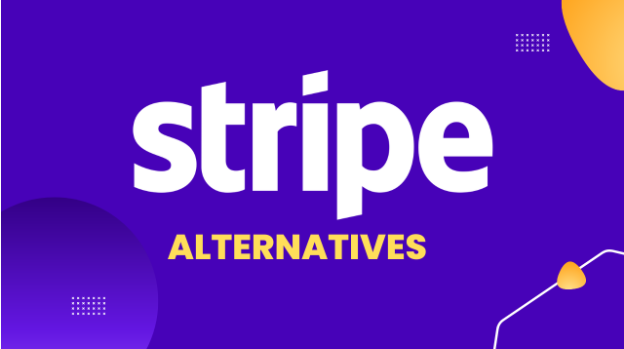When it comes to choosing a payment platform for your company, Stripe can be the best option. However, due to the highly high costs and severely restricted local bank payouts, it has some restrictions.
Over the past few years, a large number of Stripe competitors have come to light, each with better customer service, more flexible cost structures, and less product limitations. Before choosing on a new, full-time payment partner, it's always a good idea to look at some top Stripe alternatives.
Here, we go to ten of the best Stripe alternatives, looking at what makes each one different and how to pick the right fit for your business.
Why Look for Stripe Alternatives?
Stripe gives its users a number of features, including the ability to take payments from Visa, Mastercard, and American Express cardholders. Integration with most e-commerce platforms is very easy using the API.
Nevertheless, it doesn’t allow PayPal payments, which most other alternatives do. Stripe guarantees PCI compliance and a high degree of security, but at times this might backfire if the business unexpectedly freezes your account or seizes your money.
Online companies seeking to increase multichannel sales, may look for Stripe alternatives which are user-friendly, affordable, and provide smooth in-person handling of payments.
1. PayPal
PayPal is one of the first and best known online payment sites, started in 1998 and based in San Jose, CA. It lets businesses take credit cards PayPal balance payments bank transfers and in the U.S. Venmo payments all under one safe roof.
With buyer protection policies and a global footprint spanning over 200 markets, PayPal continues to be a default choice for merchants seeking rapid setup and consumer confidence.
Key Features
- Global Reach: Operates in 200+ countries, accepts 25+ currencies.
- Express Checkout: Familiar button that reduces cart abandonment.
- PayPal Here: Mobile POS solution for in-person sales.
- Invoicing & Subscriptions: Built-in tools for one-off invoices and recurring billing.
Why Use It?
Ideal for small to mid-sized merchants who value brand recognition and buyer trust. PayPal has always been a great bet because of its simple integration plus the mix of offline and online features.
2. Square
Square started in 2009 with just a basic mobile card reader and then turned into a full commerce system. Based in San Francisco, CA, Square provides noe only POS hardware but also payroll, e- commerce solutions, and lending. Companies can use one dashboard from one place to handle their sales, inventory, staff, and even marketing for both physical and digital channels.
Key Features
- Integrated Dashboard: Centralizes team management, inventory, and sales both online and offline.
- Hardware Suite: Includes magstripe readers, contactless/NFC readers, and full register stations.
- Square Online: Free plan for basic websites with seamless POS integration.
- Developer API: Custom integrations and app ecosystem.
Why Use It?
Great for physical shops, coffee places, and other service givers wanting a simple link betwee͏n the real and online sides with strong analytics and extra features.
3. Payoneer
Payoneer is a New York, NY-based company which was established in 2005 and focuses on international business-to-business payments. It gives businesses and workers local receiving account͏s in different currencies, making quick low-cost inbound transfers from global marketplaces and customers.
Key Features
- Global Receiving Accounts: USD, EUR, GBP, JPY, and AUD bank details.
- Mass Payouts: Batch payments to large numbers of recipients.
- Competitive FX Rates: Low-markup currency conversions.
- Prepaid Mastercard: Direct spending from Payoneer balance.
Why Use It?
Ideal for platforms with global clients and freelancers. It simplifies multi-currency inflow and outflow much more than standard merchant accounts, and hence lowers complexity as well as FX costs.
4. Adyen
Adyen is an Amsterdam-based, enterprise-grade payments platform trusted by global brands like Uber and Spotify. Launched in 2006, it offers unified commerce through a single API for online, mobile, and in-store transactions—complete with in-house acquiring, fraud detection, and revenue optimization.
Key Features
- Global Acquiring: Direct acquiring in 20+ markets.
- Risk Management: ML-driven fraud prevention.
- Smart Routing: Optimizes authorization rates across multiple schemes.
- Real-Time Analytics: Custom dashboards and detailed reporting.
Why Use It?
Suitable for large enterprises or scaling mid-market companies needing granular control, advanced fraud tools, and local acquiring capabilities without juggling multiple providers.
5. Wise
Wise (previously TransferWise) changed globally money transfers in 2011 by offering reliable mid-market exchange rates and clear, affordable costs. It's Headquartered in London. Wise currently provides transnational business accounts, allowing organizations to keep, manage, and pay out in 50+ currencies.
Key Features
- Borderless Accounts: Local bank information in USD, EUR, GBP, AUD, and other currencies is available for borderless accounts.
- Batch Payments: Upload a CSV to pay multiple beneficiaries at once.
- Real FX Rates: No hidden markups on conversion rates.
- API & Integrations: Connects with accounting platforms like Xero and QuickBooks.
Why Use It?
Great for freelancers and small businesses that do frequent international transactions. Wise’s cost transparency and minimal fees often undercut traditional banks and other payment gateways.
6. 2Checkout
2Checkout, now part of Verifone since 2022, is a global payment and subscription billing platform founded in 2000. Based in Columbus, OH, it supports over 100 currencies and 45 payment methods, offering both hosted checkout pages and APIs for deeper customization.
Key Features
- Hosted Checkout: PCI-compliant, customizable payment pages.
- Subscription Billing: Automated recurring payments with dunning management.
- Localized Experience: Display prices and languages tailored to each region.
- Developer Tools: APIs and SDKs for bespoke integrations.
Why Use It?
Perfect for digital goods and SaaS businesses looking for a complete subscription solution. 2Checkout removes the need to build billing infrastructure from scratch, accelerating time to market.
7. Authorize.net
Authorize.Net, a Visa subsidiary founded in 1996, is a veteran payment gateway that routes transactions, manages fraud risk, and securely stores customer data. Headquartered in Foster City, CA, it requires merchants to have a separate bank-provided merchant account.
Key Features
- Flexible Integration: REST APIs, SDKs, and hosted payment forms.
- Advanced Fraud Detection: Flexible filters for transaction amount and IP.
- Customer Information Manager: Vaults customer profiles for repeat billing.
- eCheck Processing: Secure ACH payments.
Why Use It?
Recommended for businesses that already have—or want—a dedicated merchant account and need granular fraud controls, customer vaulting, and eCheck capabilities.
8. PaymentCloud
PaymentCloud, began in 2014 and situated in Jupiter, FL, is a specialty provider focusing on high-risk merchant accounts. It supports sectors generally declined by traditional banks—such as CBD, travel, and gaming—offering customized underwriting and support.
Key Features
- High-Risk Expertise: Deep vertical knowledge and specialized underwriting.
- Chargeback Mitigation: Tools and consultative support to reduce disputes.
For merchants on platforms like Shopify or WooCommerce, tools for automated chargeback recovery help combat friendly fraud and recover lost revenue with minimal manual effort. - Multi-Platform Support: E-commerce, POS, and mobile solutions.
- Dedicated Onboarding: Personal account managers expedite approval.
Why Use It?
The go-to choice for merchants in high-risk verticals who struggle to secure payment processing through mainstream providers.
9. Revolut Business
Revolut Business, part of the UK-based challenger bank Revolut (founded 2015), combines banking and payment acceptance into one platform. It offers multi-currency accounts, corporate cards, and a growing suite of business tools.
Key Features
- Multi-Currency Wallet: Hold, exchange, and send 30+ currencies.
- Payment Links & Checkout: Quick invoicing and online payments without a full checkout integration.
- Physical & Virtual Cards: Spend controls, expense management, and disposable virtual cards.
- API & Integrations: Seamless links to accounting and ERP systems.
Why Use It?
Great for startups and SMBs seeking an all-in-one financial hub—banking, payments, and expense management—under a single subscription.
10. Payment Depot
Payment Depot, established in 2010 and based in Lehi, UT, offers interchange-plus pricing: you pay the exact card network interchange rate plus a small, fixed markup. This transparent model often yields lower overall costs for mid- to high-volume merchants.
Key Features
- Interchange-Plus: No hidden markups; pass-through of card network fees.
- Unlimited Transactions: Flat monthly subscription with no per-transaction percent fees beyond interchange.
- POS & Equipment: Compatible with major terminals and software solutions.
- U.S.-Based Support: Dedicated onboarding and account management.
Why Use It?
Optimal for merchants processing $25,000+ per month who want predictable, cost-effective pricing and full visibility into their processing costs.
Conclusion
Choosing the right payment processor in 2025 means balancing cost, functionality, and risk. While Stripe excels at developer-first APIs and global reach, these ten alternatives cater to specific needs— from high-risk underwriting and subscription billing to brick-and-mortar POS integration and transparent interchange-plus pricing.
- Brick-and-Mortar & Quick Start: Square, PayPal
- Cross-Border Payouts: Payoneer, Wise
- Enterprise-Grade & Fraud Controls: Adyen, Authorize.Net
- Subscription & SaaS: 2Checkout (Verifone)
- High-Risk Verticals: PaymentCloud
- All-In-One Financial Platforms: Revolut Business
- Cost-Sensitive, High-Volume Merchants: Payment Depot
By mapping each platform’s strengths against your transaction volume, geographic footprint, and risk profile, you can secure lower fees, faster settlements, and better customer experiences.
Ultimately, a thorough evaluation—pilot testing, reading verified reviews, and speaking with sales teams—will ensure you select the processor that best supports your growth in 2025 and beyond.


 Table of Content
Table of Content










